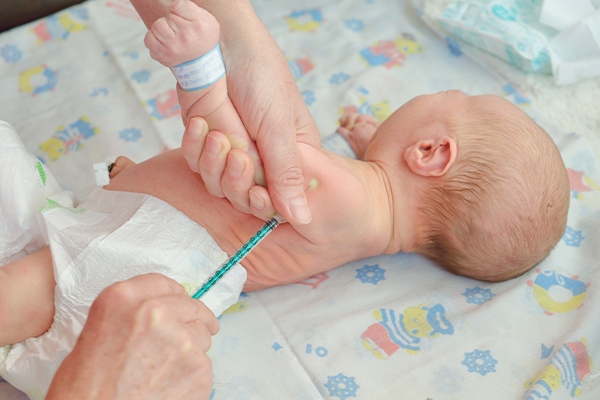Can Pregnant Women Transmit Hepatitis B?

Hepatitis B is a severe disease that attacks the liver, causing serious health problems over time, including liver damage, liver failure, and liver cancer. It causes 1.1 million deaths each year, with 96% of deaths caused by hepatitis B and C viruses.
Hepatitis B is transmitted through contact with blood and body fluids from an infected person. In 2019, the World Health Organization (WHO) estimated that 296 million people worldwide were infected with the hepatitis B virus.
Based on Riskesdas 2013 data, the prevalence of hepatitis B (HbsAg) in general is 7.1%, or equivalent to 18 million Indonesians. In Indonesia, hepatitis B is mainly transmitted from mother to child, called perinatal transmission or vertical transmission.
Vertical transmission can occur during pregnancy, childbirth, after birth, or postnatal. The infection can be transmitted to the baby through the mother's blood and body fluids through the placenta during childbirth and breast milk.
In fact, without intervention, 70–90% of babies born to mothers who are positive for hepatitis B antigen will experience chronic infection, and 90%–95% of these conditions will develop into chronic hepatitis B.
Can this transmission be prevented?

Yes. This transmission can be prevented by screening for HBsAg during pregnancy. This screening is part of the antenatal blood test. If the blood test results are positive for hepatitis B, the medical team will offer a test to check the level of hepatitis B virus in the blood.
The level of hepatitis B is called the viral load. The higher your viral load, the greater the chance of transmitting the hepatitis B virus to your baby.
In pregnant women with a high viral load, the risk of vertical transmission reaches >10% even with a combination of HBIG and vaccination. Therefore, since 2022, the Ministry of Health has also provided the antiviral drug tenofovir disoproxil fumarate to pregnant women diagnosed with hepatitis B.
Infants born to mothers with HBsAg+ should also receive HBIG or hepatitis B immunoglobulin and a single-antigen hepatitis B vaccine within 12 hours of birth. HBIG provides extra help for the baby's body to fight the virus immediately after birth.
Only infants born to mothers with hepatitis B receive HBIG injections. This prevention requires a complete series of hepatitis B vaccines, up to 94% effective in preventing vertical transmission.
Overall, babies will receive 3–4 hepatitis B vaccines. After the first vaccination in the hospital, vaccination will be given at 1 to 2 months. The last vaccination is given when the baby is six months old.
Mothers with hepatitis B are also advised not to directly breastfeed their babies until the baby receives the hepatitis B vaccine. After that, breastfeeding can continue as usual because it is no longer a factor in the spread of the hepatitis B virus.
Be aware of the symptoms:
- Prolonged fatigue
- Nausea and vomiting
- Swollen abdomen
- Fever
- Skin and eyes appear yellow.
- Dark urine
How to manage this condition
For pregnant women with reactive HBsAg results, consider testing for:
- HBV DNA or HBeAg examination.
- HBV DNA results ≥200,000 IU/ml or positive HBeAg will get preventive treatment with tenofovir.
- Pregnant women with cirrhosis status continue long-term treatment.
- Inform them of the location of delivery for HBIg preparation.
- Accompaniment.
- Hepatitis B screening for couples.
Infants born to HBsAg reactive mothers:
- Provision of HB0 and HBIg within 24 hours
- Early initiation of breastfeeding and exclusive breastfeeding
- Complete basic immunization
- HBsAg and antiHBs tests at age 9-12 months
Hepatitis is the most common cause of jaundice in pregnancy. Hepatitis in pregnancy is often related to gestational and fetal complications. Adhering to screening recommendations is critical to preventing viral hepatitis from mother to child.
Early detection, appropriate treatment, and vaccination can reduce the risk of transmission to the baby.
Health check-up

Are you hoping for a safe pregnancy and a healthy baby? Begin with a premarital health examination.
At GWS Medika Clinic, a health clinic in Jakarta, you can do a premarital check-up to prevent disease transmission, prepare for pregnancy, and improve your health. One of them is hepatitis B screening and hepatitis B vaccination for you and your partner or your baby when he is born.
Premarital health check-ups can be done at any time. However, they are recommended at least six months before the big day so that they can be treated immediately if there are health problems.
Let's raise awareness about hepatitis B and maintain the health of mothers and children.



